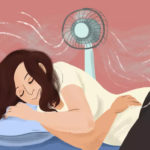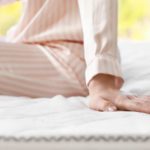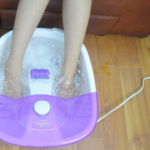Insomnia, difficulty falling asleep, or sleep deprivation are common issues among the elderly, and these can negatively affect their physical and mental health. Discover some medication-free tips to improve sleep for seniors in the article below!
1 Nutritious Diet
A balanced and nutritious diet is crucial for seniors. As their digestive system and nutrient absorption capabilities tend to decline with age, it’s important to focus on essential nutrients to maintain health and prevent illnesses.
Deficiencies in vitamins, minerals, and other essential nutrients can lead to weakness, impaired immune function, and even insomnia.
To improve their overall health and reduce the risk of diseases, seniors should include vitamin-rich foods, minerals, healthy fats, and antioxidants in their daily meals. At the same time, they should limit their intake of sugary foods, deep-fried dishes, and processed foods. For seniors with existing health conditions, consulting a doctor to create a personalized diet plan is essential.
 Nutritious Diet
Nutritious Diet
2 Maintain Good Sleep Habits
To maintain their mental and physical health, seniors need adequate rest and relaxation. Establishing and maintaining a fixed sleep schedule is crucial for improving sleep quality. It’s preferable to cultivate the habit of sleeping early and waking up early rather than staying up late and sleeping in.
To enhance sleep quality, seniors should avoid the following habits: staying up late, eating large meals in the evening, using electronic devices before bed, and consuming stimulants such as caffeine, alcohol, tobacco, and sleeping pills. Napping during the day can also disrupt their biological clock and make it harder to fall asleep at night.
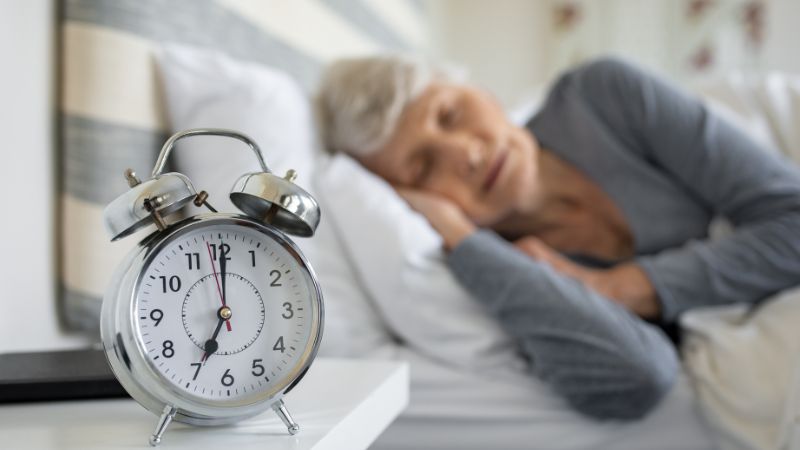 Maintain Good Sleep Habits
Maintain Good Sleep Habits
3 Get Enough Sleep
Getting sufficient sleep is vital for maintaining the biological clock and reducing insomnia in the elderly. So, how many hours of sleep do seniors need daily?
Seniors should aim for 7 to 8 hours of sleep each night to maintain their mental and physical well-being. If they take naps during the day, these should be limited to 30 minutes to 1 hour. In cases of insomnia, seniors can lie down, close their eyes, and relax, even if they cannot fall asleep.
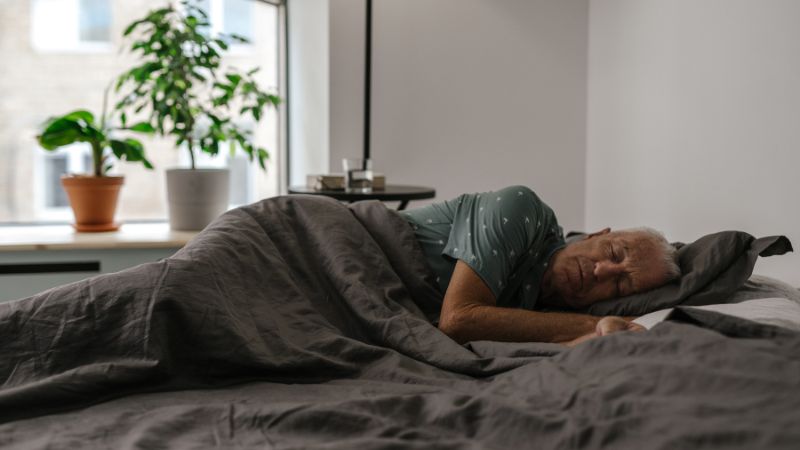 Get Enough Sleep
Get Enough Sleep
4 Exercise Regularly
Regular physical activity offers numerous health benefits for seniors, including improved sleep quality and a reduced risk of insomnia.
It is recommended to engage in 15-20 minutes of moderate-intensity exercise daily. However, it’s important to avoid exercising too close to bedtime and overdoing it, as this can disrupt sleep patterns.
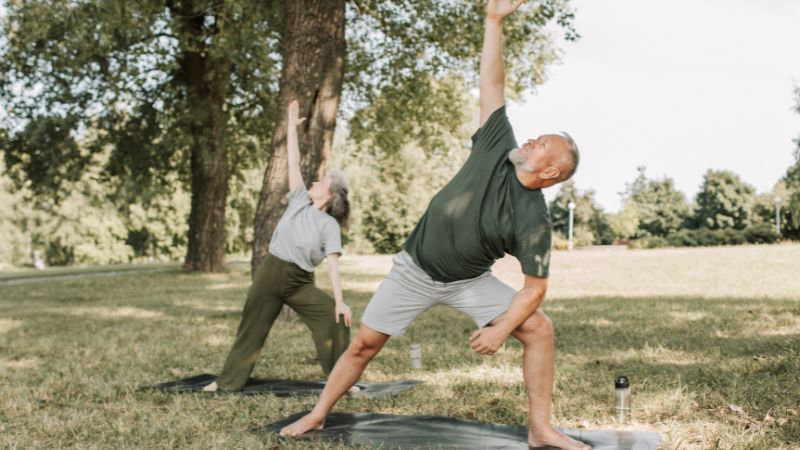 Exercise Regularly
Exercise Regularly
5 Choose the Right Mattress
Selecting a suitable mattress is essential for seniors to achieve a good night’s rest. Opt for a medium-firm mattress that provides adequate support for the body and reduces pressure on the spine and joints.
Avoid mattresses that are too soft or too firm, as they may disrupt sleep quality. Additionally, choose a mattress with a height of 10 to 15 cm to minimize the risk of falling out of bed. Ensure the mattress is breathable to keep seniors comfortable and prevent excessive sweating during sleep.
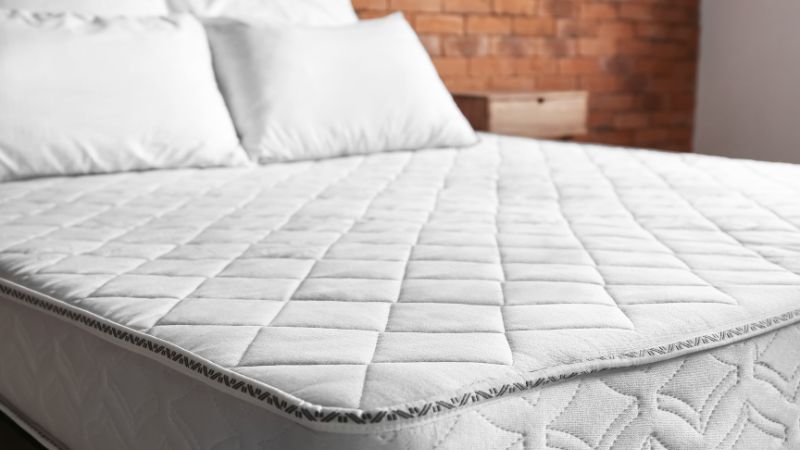 Choose the Right Mattress
Choose the Right Mattress
Adequate sleep plays a crucial role in maintaining the mental and physical health of seniors. Getting enough sleep helps improve memory, boost immunity, and reduce the risk of heart disease, diabetes, and stroke. Therefore, it’s important for seniors to develop healthy sleep habits to achieve restful and restorative sleep.
Source: Sức khỏe và Đời sống Newspaper
Tips for Keeping Cool on a Hot Summer Day
As extreme weather patterns become increasingly common, many are struggling to find ways to cope. With temperatures in our country rising and cooling far beyond what used to be considered normal for the season, winter often feels like spring and summer can be oppressive and sweltering. How can we prepare for and manage the drastic shifts in climate?
How to Make Sure You Buy the Perfect Mattress for Optimal Sleep and Health
Want to know the essentials of selecting a quality mattress that will give you a peaceful night’s sleep and boost your health? Look no further! This article provides all the key advice for finding a mattress that suits your specific needs and ensures you get a well-deserved rest. Get the important information you need to make the perfect mattress choice right here.
Consequences of Improper Use of Blankets and Mattresses on Health
 Mattresses on Health’>
Mattresses on Health’>Do you know if you are making the right decisions when it comes to picking out blankets and mattresses? A recent study has revealed that there are four common mistakes that people make that can have an effect on their health. Find out what these mistakes are.


